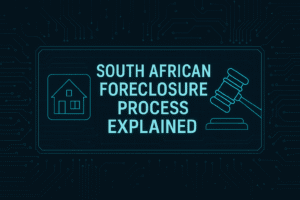Table of Contents
Introduction to Mortgage Assistance Programs
Real Estate Assist Mortgage Assistance Programs are a godsend for those struggling to make payments. These initiatives aim to stop foreclosures, reduce financial stress and make home ownership more achievable. There are many options available, tailored to different people and cases. They provide relief to those in economic difficulty.
Down payment assistance, closing costs or monthly mortgage payments can be funded by certain programs. To qualify, one might need to be a first-time homeowner or meet other criteria, like location or occupation. Free counseling services are also available from non-profit organizations to beat financial obstacles.
The Covid-19 pandemic has caused more people to look into these programs. Lenders and government departments have responded with new plans such as forbearance and foreclosure protection. The goal is to help individuals financially while keeping housing stability- a key element for family well-being.
No matter the financial situation, there’s a mortgage assistance program for everyone.

Types of Mortgage Assistance Programs
Aspiring homeowners can benefit from various Mortgage Assistance Programs that offer financial aid to acquire a residential property. Here are some of the types of programs that provide assistance in fulfilling the dream of homeownership:
- Down Payment Assistance Programs (DPA)
- Mortgage Credit Certificate (MCC)
- Home Equity Conversion Mortgage (HECM)
- Federal Housing Administration (FHA) Loans
These programs provide different types of financial assistance to prospective homeowners. DPA, for instance, offers grants, loans, or a combination of both to cover the down payment and/or closing costs. MCC, on the other hand, offers eligible homebuyers a tax credit for a portion of their mortgage interest. HECM enables seniors (62+) to convert home equity into cash while still living in their homes. FHA Loans provide government-backed financing, allowing buyers to obtain a mortgage with a down payment as low as 3.5%.
It is crucial to note that each program has specific requirements and qualifications, and some may have limited availability due to high demand. It’s essential to research and understand the details of each program before applying.
Amidst the many heartwarming stories of homeowners realizing their dream, one stands out. A single mom, struggling with housing expenses, learned about DPA and qualified for grant assistance. She was able to purchase a family home, and the program helped her achieve homeownership despite financial constraints.
Loan modification is like trying to fit into your old jeans after a Thanksgiving feast – it’s a struggle, but with a little assistance, it’s possible.
Loan Modification Assistance programs
When it comes to changing a mortgage, lenders and the government have various types of assistance programs. A loan modification is one solution. This involves switching up the original terms to make things easier for the borrower.
The lender may reduce the interest rate, stretch the repayment period, or write off some of the principal balance. The purpose is to lower the monthly payments so that the borrower can remain in their home and avoid foreclosure.
Not everyone is eligible for a loan modification. Borrowers must prove financial hardship and indicate that they can handle the new payment schedule.
A loan modification could have drawbacks too, such as extending the overall repayment period or increasing the total amount paid in the long run.
In 2008, due to the financial crisis, many people had trouble meeting their mortgage payments and were at risk of foreclosure. To fix this, the government set up programs like HAMP (Home Affordable Modification Program). These allowed qualified borrowers to modify their mortgages with help from their lender.
Loan modifications are a valuable asset for those facing financial hardship. But, every borrower’s situation is unique and it’s key to look into all options before making a decision.
Mortgage Refinancing Assistance
Refinancing a mortgage with the help of Real Estate Assist means replacing an old one with a newer one that has different conditions and maybe a lower interest rate. To do this, pay off the old loan with money from the new one.
Before considering a mortgage refinance, homeowners should keep track of interest rates, fees, credit scores, and home equity. This financial aid can lead to lower payments, lower interest, and shorter loan terms.
In addition, there are three types of refinancing available: cash-out refinance, streamline refinance, and rate-and-term refinance.
In 2008, during the subprime crisis, the US government created the Home Affordable Refinance Program (HARP) to help homeowners with underwater mortgages refinance their loans at a lower rate.
If you’re having trouble with mortgage payments, a repayment plan is like a financial therapist—it helps you get back on your feet and reduces the need to stress-spend on comfort food. Real Estate Assist is your best mortgage refinance assistance in South Africa.
Repayment Plan
A Mortgage Repayment Plan is an agreement between lender and borrower. Real Estate Assist helps those facing financial difficulty to keep their homes. The plan lets them pay smaller amounts for a while, then regular payments resume.
Not all lenders offer this program. Requirements must be met and proof of hardship provided.
The plan helps homeowners when a job loss or medical emergency occurs. Speak to your lender and consider other options, as it could affect your credit score.
One homeowner, who lost her job due to the pandemic, was worried about losing her home. She spoke with a housing counselor and got a reduced monthly payment until she got back on her feet.
Can’t pay your mortgage? Just tell the bank you’re in a temporary coma and need forbearance – it’s like taking a financial nap! Can’t pay your mortgage in South Africa? Real Estate Assist has the perfect debt solution for you.
Forbearance Assistance in South Africa
One mortgage assistance program is called ‘suspended payments.’ During this time, a homeowner doesn’t need to make payments. But, interest will still continue to build up. When the forbearance period ends, the homeowner must pay back the skipped payments in one payment or make bigger payments over a set amount of time.
This type is for those who have a short-term financial problem, like an unexpected medical bill or job loss. It provides relief from making payments for some months while they can get back on track.
Keep in mind: forbearance is not forgiveness. You will still owe the money that you did not pay during the forbearance period. Consider loan modification or refinancing advice with Real Estate Assist before deciding on forbearance.
Pro Tip: Talk to the lender as soon as possible and understand all the terms and conditions. Also, look into other mortgage assistance programs before choosing one. Eligibility for the programs depends on many things like income, credit score, and how well you can explain your situation.

Eligibility for Mortgage Assistance Programs
Mortgage relief program requirements
To qualify for assistance under the mortgage relief program, applicants must meet specific requirements. These requirements vary depending on the program and the state in which the applicant resides. To be eligible for most mortgage assistance programs, the applicant must have experienced financial hardship due to job loss, illness, divorce, or other qualifying factors. In addition, the applicant must provide documentation to prove their inability to pay their mortgage. Other eligibility factors may include mortgage type, loan balance, and credit score. Real Estate Assist Debt Relief Assistance in South Africa.
Furthermore, applicants are often required to attend counseling sessions, complete financial education courses, and provide regular updates on their financial situation. These requirements help ensure that the applicant is making progress toward financial stability and can maintain their mortgage payments in the future.
While the specifics of each program may vary, most mortgage assistance programs aim to help struggling homeowners avoid foreclosure and keep their homes. Through Real Estate Assist programs, thousands of families have been able to stay in their homes and avoid the devastating effects of foreclosure.
For example, the Home Affordable Modification Program (HAMP) was introduced in 2009 to help struggling homeowners modify their mortgages and avoid foreclosure. Since its inception, HAMP has helped more than 1 million homeowners.
Overall, while the eligibility requirements for mortgage assistance programs can vary, they provide a lifeline for struggling homeowners who may otherwise lose their homes. By providing financial assistance, counseling, and education, these programs help homeowners get back on their feet and maintain a stable financial future.
Don’t worry about your income, as long as you can afford to watch Netflix, you can afford a mortgage.
Real Estate Assist helps with mortgage assistance in South Africa
Income Requirements
When it comes to mortgage assistance programs, income may be a factor in determining eligibility. Programs may require households to earn a certain percentage of the area median income or proof of difficulty making payments due to a loss or reduction of income. Documentation and income verification is key for accurate eligibility assessment.
Income from traditional sources such as jobs, rental income, child support, alimony, and government benefits can be factored in. Income from people not listed on the mortgage may also be taken into account. It’s important to read the program guidelines to understand how these types of income are considered.
Even those with moderate or high incomes can find help if they experience financial hardship due to job loss or other factors. Sarah was one such example; she was laid off unexpectedly, but was able to find a mortgage assistance program that worked with her individual circumstances and ultimately helped her avoid foreclosure. Credit scores are important, but don’t forget – if it’s below 600, swiping right is a no-go.
Credit Score
Your Credit Profile and Mortgage Assistance Programs.
Lenders evaluate creditworthiness by looking at credit scores. This is a summary of all your financial activities. Your credit score is a number that expresses how risky it is to lend you money. Real Estate Assist helps improve credit score in South Africa.
For mortgage assistance programs, lenders consider credit history. A good score implies loan approval with lower interest rates. Alternatively, low scores may lead to loan rejection or higher interest rates. Credit score is not the only factor taken into consideration; employment history and monthly income are also looked at.
FHA Loans, VA Loans, USDA Loans and Reverse Mortgages are mortgage assistance programs that help eligible people buy homes at affordable rates by providing flexible terms and conditions and lower interest rates.
Conventional mortgages usually necessitate stringent qualifying criteria. Therefore, research these options ahead of time to make sure they fit your eligibility criteria so you don’t miss out on them. Your eligibility for mortgage assistance won’t be a rollercoaster ride even if your home’s value fluctuates. Improve Credit Score in South Africa with Real Estate Assist
Property Value and Equity
Property Value and Equity are critical when it comes to mortgage assistance programs. The higher these two factors, the larger the loan amount you may be eligible for.
Here’s a table to help illustrate this:
| Property Value | Equity Required |
|---|---|
| $200,000 | $20,000 |
| $250,000 | $25,000 |
| $300,000 | $30,000 |
Additionally, there are other requirements such as credit score, employment history, debt-to-income ratio, etc.
Natural disasters like hurricanes or wildfires can also qualify an individual for temporary suspension or reduction of mortgage payments for up to one year, as per Freddie Mac’s disaster relief policies.
It’s important to research and understand all eligibility requirements before applying. Meeting these will give you a better chance of getting financial aid for your mortgage payments if you’re in a time of crisis or financial instability.
After all, applying for mortgage assistance programs is no easy feat! Real Estate Assist can help improve property equity and value in South Africa.
How to Apply for Mortgage Assistance Programs
Mortgage Assistance Program Application Process
When it comes to applying for mortgage assistance programs, it is important to follow a few essential steps to ensure success. Firstly, gather all necessary documents and financial information related to your mortgage and income. Secondly, contact your mortgage servicer or government-approved housing counselor to discuss program eligibility and requirements. Thirdly, submit a complete application and follow up with the servicer or counselor for updates on your application status. Finally, if approved, carefully review the terms and conditions of the program and ensure timely payments.
It is worth noting that besides the above-mentioned steps, some programs may have additional requirements or criteria specific to their program type. Therefore, always read carefully the guidelines and eligibility requirements before applying.
In today’s uncertain times, where unpaid bills and mortgage payments are on the rise, it is crucial not to delay taking action. Explore mortgage assistance programs and take advantage of any available help. You can never be too prepared, and the sooner you apply, the better your chances of preserving your home.
Get ready to show off your collection of paperwork, because gathering required documents for a mortgage assistance program is like playing a never-ending game of I Spy.
Gathering Required Documents
To get accepted for Mortgage Assistance Programs, preparation, and document collection is key! Gather up:
- 2 years of tax returns & W-2 forms.
- Proof of other income, like Social Security or rental income.
- Bank statements of last 6 months’ deposits & expenses.
- Relevant legal documents (Divorce Papers, Death Certificates, etc.).
Be sure to read all guidelines carefully. Double-check your paperwork is complete & correct before submitting. Copies of documents should be kept & labeled with dates. Otherwise, you might get a delay or rejection. Talking to your mortgage servicer won’t help much!
Contacting Your Mortgage Servicer
When searching for mortgage help, communication with the servicer is key. Reach out to them to find out what resources and paperwork you need. Speak to your mortgage administrator right away for the best plan.
Be clear about your financial state and what assistance you need. Have your pay stubs, bank statements and tax returns ready. Ask about forbearance and payment reduction programs that work for you.
Pro Tip: Record all conversations with your servicer for future reference. And don’t worry, this application is simpler than locating a coin under the cushions!
Completing the Application
Accurately completing the application process for mortgage assistance programs is key. Here’s how:
- Read and understand all instructions
- Gather documents like income statements and tax returns
- Fill out the application form with accurate information
- Ensure all required fields are filled correctly
- Attach any additional documents as instructed
- Submit the application and wait for communication
Click here to complete Real Estate Assist application form
Note: lenders have different requirements for approval. So, take note of their guidelines when applying.
Pro Tip: double-check forms and use the checklist. Look forward to emails about your mortgage assistance progress.
Follow-Up and Notification
Once you submit your application, you may be wondering about follow-up and notification. It’s smart to check on the status of your application if you haven’t heard anything within a few weeks. Use any contact info in the app. When there is an update, you should receive a notification via phone or email.
If you haven’t heard anything and have tried to reach out, consider getting updates from other sources, like the agency’s website or social media. Make sure you give accurate contact info in your initial application.
Keep in mind that notification timeframes can vary by program, applicant volume, and funding availability. Don’t expect immediate updates after submitting applications or inquiries.
Stay informed of programs. New opportunities could come up, due to changes in your finances or program requirements. Join mailing lists and follow agencies’ social media to stay aware of changes and upcoming mortgage assistance programs.
Advantages and Disadvantages of Mortgage Assistance Programs
Mortgage Assistance Program Pros and Cons
Mortgage assistance programs have both advantages and disadvantages. Here are three points to consider:
- Advantages:
- Mortgage assistance programs can help those who are struggling to make their monthly mortgage payments.
- These programs can provide a way to avoid foreclosure and keep homeownership.
- Some programs offer lower interest rates or other financial assistance to make monthly payments more affordable.
- Disadvantages:
- Some mortgage assistance programs may have strict eligibility requirements that limit who can benefit from them.
- Some programs may require homeowners to give up certain rights or take on additional debt.
- Participating in a mortgage assistance program can have long-term effects on credit scores and eligibility for future loans.
It is important to note that some mortgage assistance programs are specifically tailored to certain types of mortgages, so homeowners should carefully research their options to determine which program is best suited for their needs.
A relevant fact to consider is that according to the National Association of Realtors, the number of pending home sales in August 2021 decreased by 1.8% compared to the previous month.
Getting assistance with your mortgage may not make you a millionaire, but it can definitely make you feel like one.
Advantages of Assistance
Mortgage Assistance Programs provide many benefits to borrowers. Reduced interest rates, extended repayment periods, and down payment assistance can make homeownership possible. Borrowers also get access to debt counseling and other financial resources, which gives them a sense of security.
Incentives such as tax credits and indemnities are offered to lenders to encourage participation. However, not everyone will qualify, as eligibility criteria must be met. These may include residency status, credit history, income documentation, and more.
One example is the Home Affordable Refinance Program (HARP). This helped millions of eligible homeowners refinance their mortgages during a time when home values were dropping rapidly, reducing their monthly payments.
Mortgage Assistance Programs offer opportunities for borrowers. They have tailored assistance and support throughout the process. However, they cannot solve the underlying problem.
Disadvantages
Mortgage Assistance Programs: Potential Pitfalls.
Mortgage assistance programs can help homeowners with financial strain. But, there are some potential disadvantages to consider:
- Ineligibility: Not all homeowners qualify. Investing time and money with no success.
- Temporary Relief: Relief is not guaranteed in the long run.
- Higher Interest Rates: Higher interest rates or fees can cause more strain.
- Credit Score Impact: Credit scores can be negatively affected.
- Limited Assistance Options: Few options may not address the unique financial circumstances.
Some states have stricter regulations than others.
Pro Tip: Research all the options. Consider consulting a financial advisor for the best course of action.
Choosing between mortgage assistance programs and not is like choosing between root canal and a colonoscopy.
Assistance from Real Estate Assist offers several advantages to homeowners and property owners in need. Here are some key benefits:
- Professional Expertise: Real Estate Assist provides access to a team of experienced professionals who specialize in assisting homeowners and property owners. Real Estate Assist They have in-depth knowledge of the real estate market, financing options, and legal processes, ensuring that you receive expert guidance throughout the entire process.
- Tailored Solutions: Real Estate Assist understands that every situation is unique. They take the time to assess your specific needs and develop customized solutions to address your challenges. Whether you’re facing foreclosure, struggling with debt, or need assistance with property management, they can provide personalized strategies to help you overcome obstacles.
- Comprehensive Support: Real Estate Assist offers a wide range of services to support homeowners and property owners. From debt consolidation and refinancing to property sales and investment opportunities, they have the resources and expertise to meet your needs. Their comprehensive approach ensures that you have access to all the necessary tools and support to achieve your goals.
- Stress Reduction: Dealing with financial difficulties or property-related issues can be extremely stressful. Real Estate Assist aims to alleviate that burden by providing compassionate and supportive assistance. They handle the complex paperwork, negotiate with lenders or creditors on your behalf, and guide you through the entire process, allowing you to focus on rebuilding your financial stability and peace of mind.
- Access to Networks and Resources: Real Estate Assist has established relationships with a network of industry professionals, including lenders, attorneys, and investors. These connections can be instrumental in finding the best solutions for your specific needs. They can tap into these resources to provide you with access to favorable financing options, potential buyers or investors, and other support services that can help you achieve your goals.
- Long-Term Solutions: Real Estate Assist aims to provide sustainable, long-term solutions for homeowners and property owners. They don’t just focus on immediate fixes; instead, they work with you to develop strategies that will help you achieve financial stability and maintain a healthy property portfolio in the future. This long-term perspective ensures that you are equipped with the tools and knowledge to navigate any challenges that may arise.
In seeking assistance from Real Estate Assist offers numerous advantages, including professional expertise, tailored solutions, comprehensive support, stress reduction, access to networks and resources, and long-term solutions. Whether you’re facing financial difficulties, property-related issues, or seeking opportunities for growth and investment, Real Estate Assist can provide the guidance and support you need to achieve your goals.
Conclusion: Should You Apply for Mortgage Assistance Programs?
Evaluating your finances and researching help is key for Mortgage Assistance Programs. Income, credit score, and the type of mortgage could affect eligibility. Applying could lengthen the mortgage term.
Sustainability is key. Research state or municipal programs that could be beneficial, without extra debt. Speak to a housing counselor to see what fits your needs.
No hard and fast rules exist to decide if a program is right for you. Don’t overlook potential benefits that can ease financial strain.
One family’s father passed away during COVID-19 lockdowns. They couldn’t pay the mortgage, and were at risk of eviction. An assistance program gave them a payment reduction, avoiding foreclosure and offering more time to get back on their feet.
Frequently Asked Questions
1. What are mortgage assistance programs?
Mortgage assistance programs are initiatives designed to help homeowners avoid default and foreclosure by providing financial assistance or counseling services. These programs can help individuals or households facing financial hardship due to job loss, illness, or other circumstances.
2. Who is eligible for mortgage assistance programs?
Eligibility requirements vary depending on the type of assistance program, but typically, homeowners must be experiencing financial hardship and be at risk of default or foreclosure. Homeowners may also need to meet income and other requirements to qualify for certain programs.
3. What types of mortgage assistance programs are available?
There are different types of mortgage assistance programs available, including loan modification programs, forbearance programs, and mortgage refinance programs. These programs may also offer financial counseling and education to help homeowners better manage their finances.
4. What is a loan modification program?
A loan modification program is a type of mortgage assistance program that allows homeowners to modify the terms of their existing mortgage to make payments more manageable. This may include reducing interest rates, extending the loan term, or changing the type of loan. Real Estate Assist takes care of your creditors for you.
5. What is a forbearance program?
A forbearance program is a type of mortgage assistance program that allows homeowners to temporarily pause or reduce their mortgage payments due to financial hardship. After the forbearance period, homeowners will be required to resume regular payments or work out a repayment plan with their lender.
6. How can homeowners apply for mortgage assistance programs?
Homeowners can apply for mortgage assistance programs by contacting their lender or a HUD-approved housing counseling agency. These agencies can help homeowners determine their eligibility for various programs and provide assistance with the application process.



